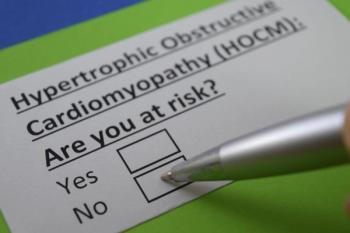
Study Suggests Azithromycin Associated With Heart Death Risk
Azithromycin may be linked to a greater risk of cardiovascular death, according to a recent study.
The use of a common antibiotic, azithromycin, may be associated with an increased risk of cardiovascular death and noncardiovascular death, according to a recent study.
This retrospective cohort study, published in
The study included more than 7.8 million antibiotic exposures, including azithromycin and amoxicillin exposures for outpatient use.
The cohort included nearly 3 million patients ranging from 30 to 74 years old who had at least 12 months of health-plan enrollment prior to antibiotic exposure.
The investigators found that azithromycin was associated with a significantly increased hazard of cardiovascular death (a hazard ratio [HR] of 1.82) but not sudden cardiac death (HR, 1.59), within 5 days of exposure. However, they did not find any increase risk of cardiovascular death 6 to 10 days after exposure.
They found similar results in patients within the top decile of cardiovascular risk (HR, 1.71). Azithromycin was also associated with an increased risk of noncardiovascular death (HR, 2.17) and all-cause mortality (HR, 2.00) within 5 days of exposure.
“Although these analyses cannot establish causality, prescribers should be aware of this potential association,” the study investigators wrote.
Cardiac arrhythmias have been reported for clarithromycin and azithromycin, the investigators pointed out. Macrolide antibiotics, as a class, are known to cause QT prolongation in some at-risk populations.
“In most of the case reports of macrolide antibiotic use and cardiac arrhythmias, patients had other factors that put them at an increased risk for cardiac arrhythmias, including underlying cardiac disease (ie, bradycardia, congestive heart failure, baseline QT prolongation, cardiomyopathy, atrial fibrillation, and myocardial ischemia), metabolic anomalies that increase the risk of arrhythmia (ie, hypokalemia, hypocalcemia, hypomagnesemia, and hypoxia), or concomitant use of other medications known to prolong the QT interval,” the investigators wrote.
Reference
1. Zaroff J, Cheetham C, Palmetto N, et. al. Association of azithromycin use with cardiovascular mortality. JAMA Network Open. June 17, 2020.
Newsletter
Pharmacy practice is always changing. Stay ahead of the curve with the Drug Topics newsletter and get the latest drug information, industry trends, and patient care tips.























